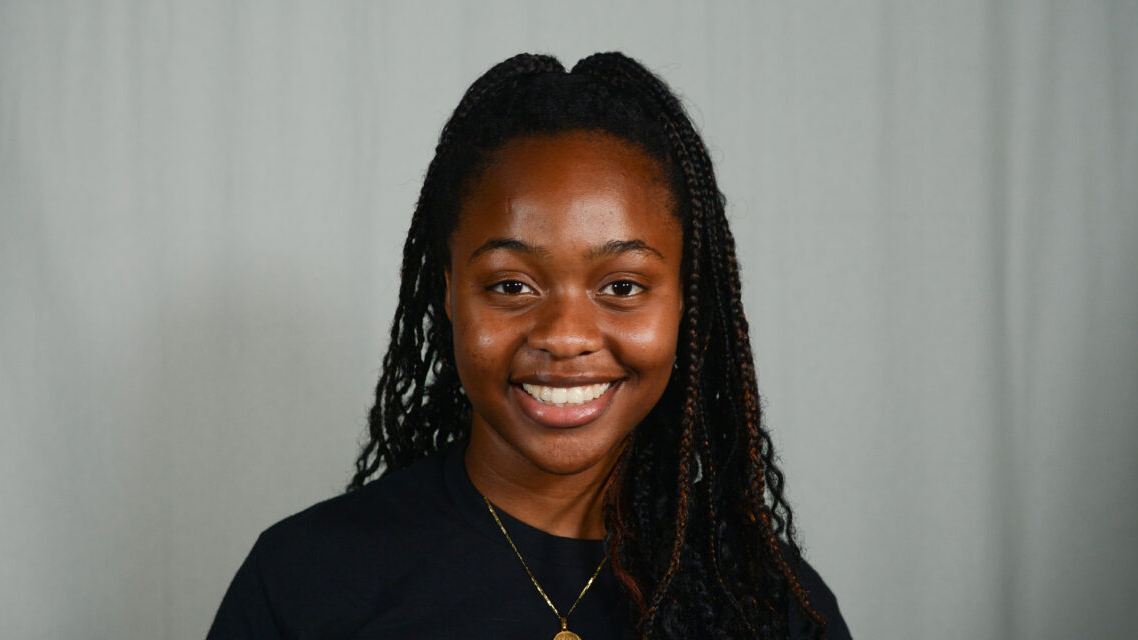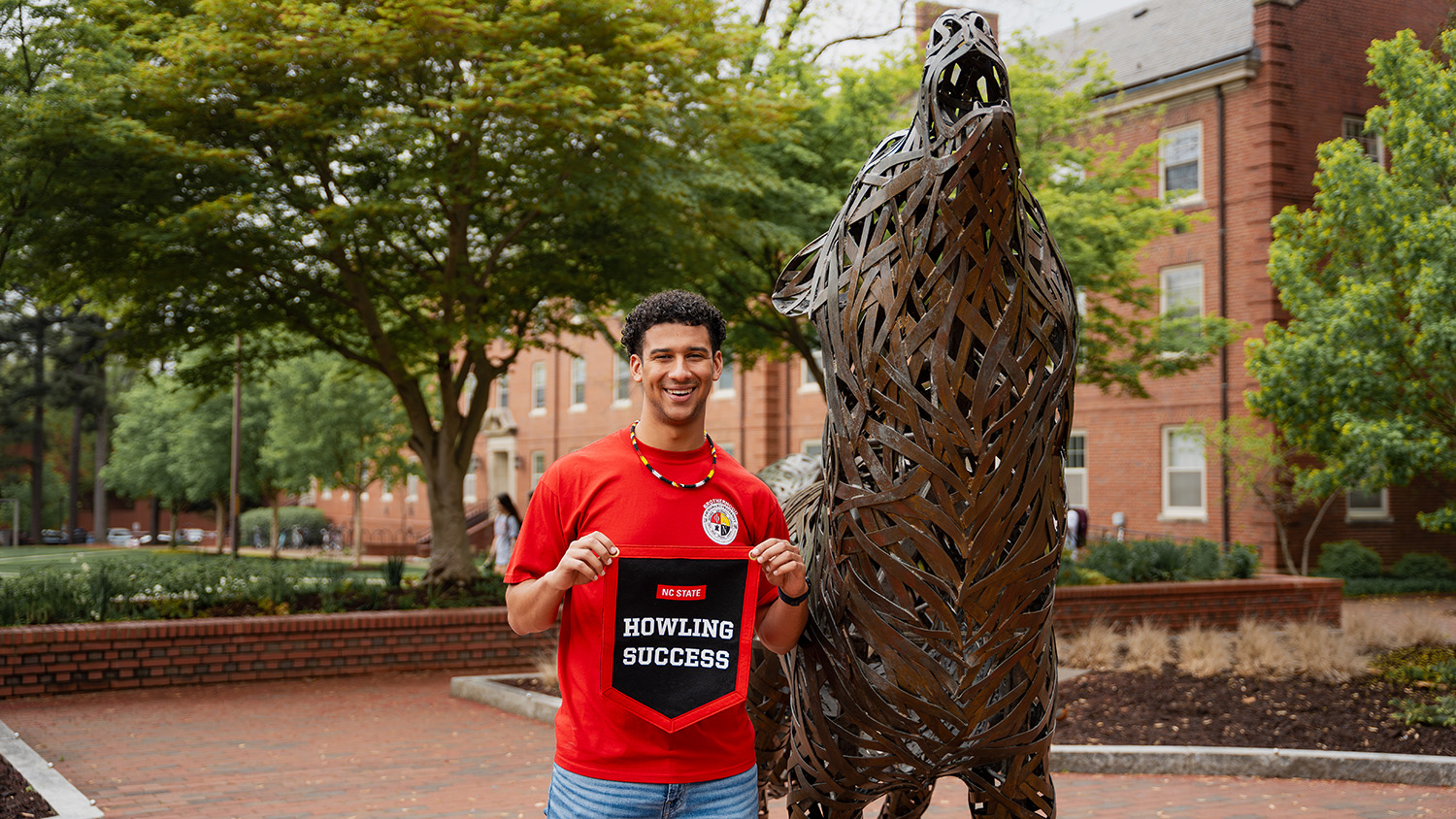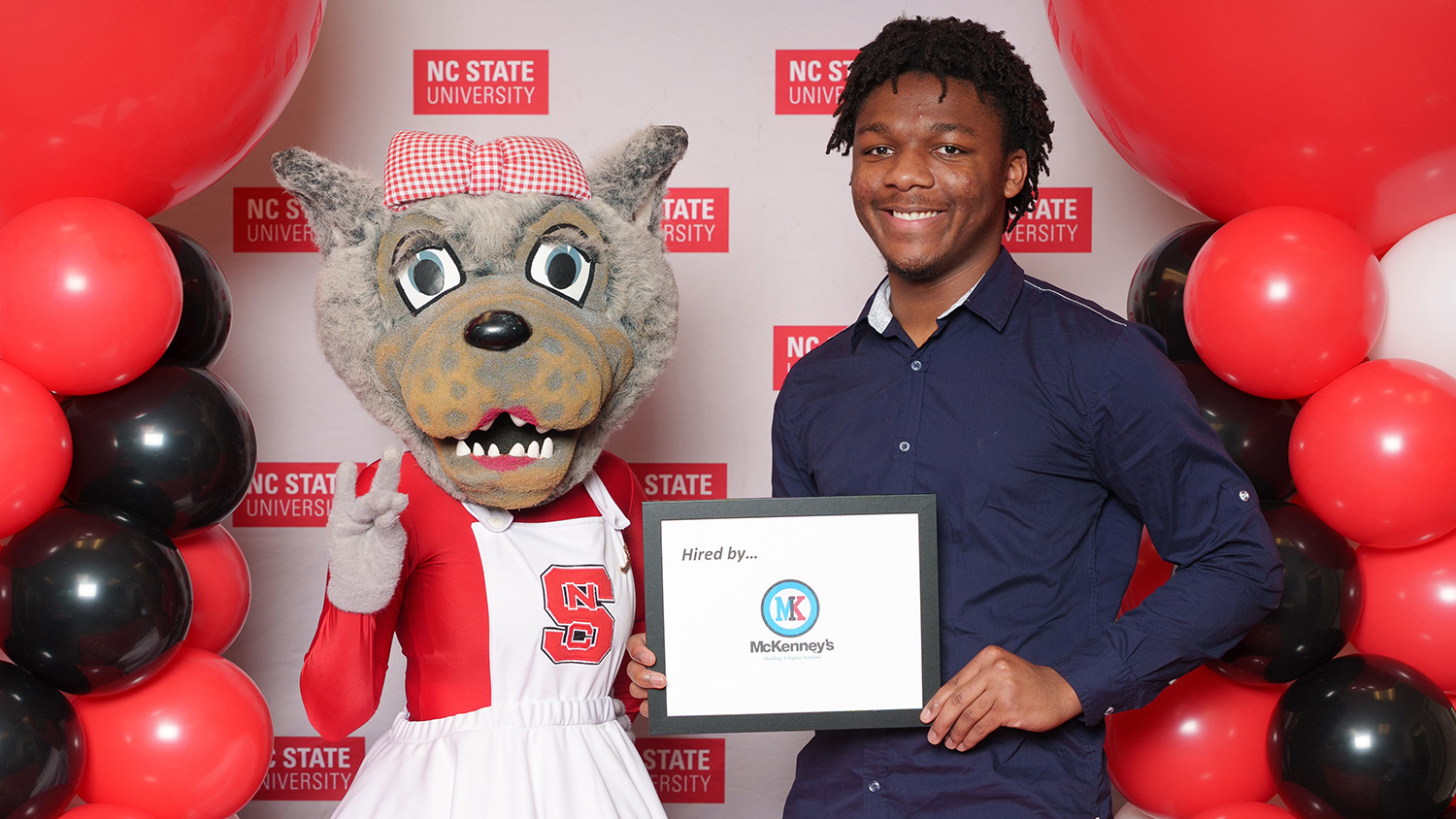Spotlight on Our Students: So You’re Digging for Dinosaurs?
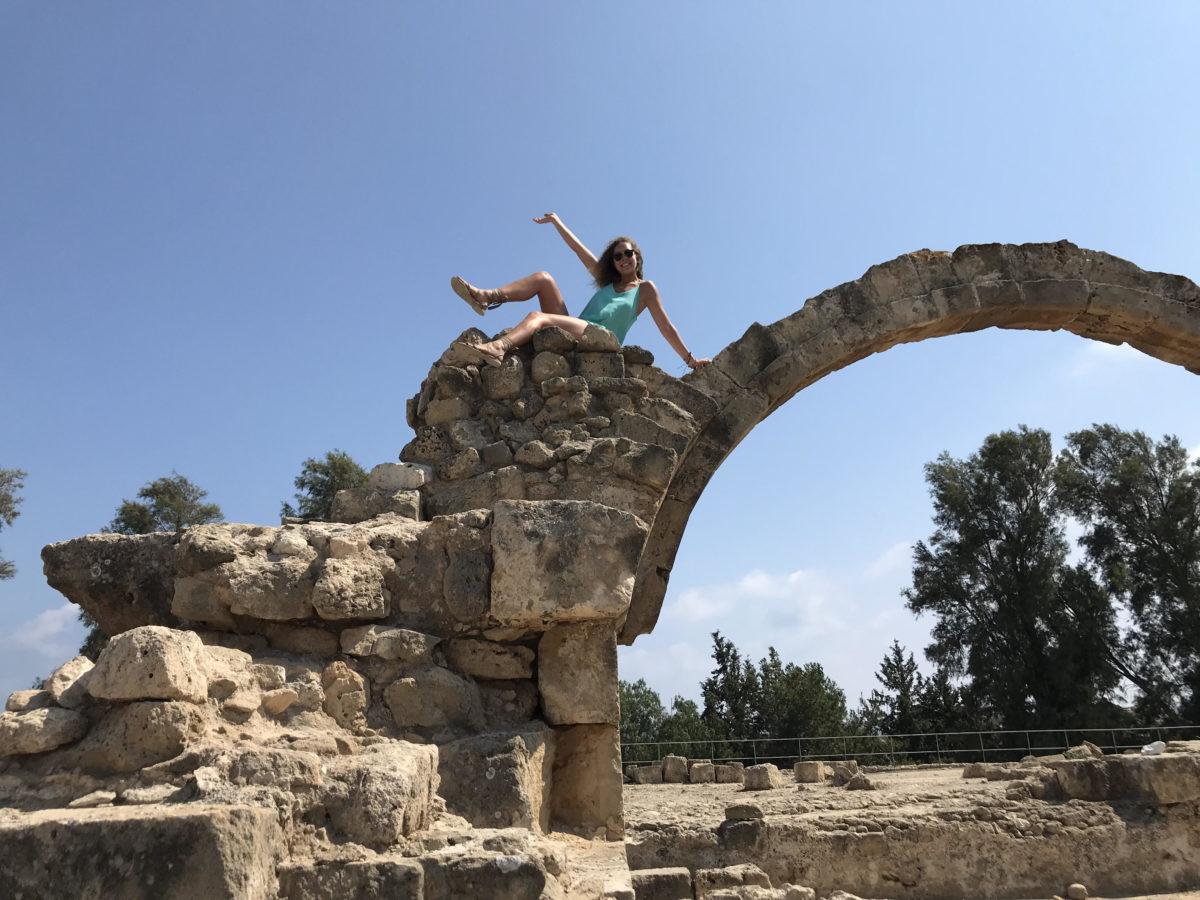
In this edition of Spotlight on Our Students, we had the pleasure of speaking with Erin Gniewek about her summer experience in Cyprus working on an archaeological dig site in the Bronze Age site of Makounta-Voules.
Erin is a rising third-year University Scholar from Advance, NC, double-majoring in Animal Science and Anthropology. Erin is very excited to be working with a lab from NC State to uncover the history of Cyprus through her experience on this dig. Read on to learn more about Erin and what an archeological dig really entails in this interview by the University Scholars Program (USP).
USP: Erin, this is one of the more unique summer experiences we’ve heard about our students doing. Can you tell us what sparked your interest in archeology and what a dig entails?
EG: I really never thought about anthropology or archaeology as a career, I just happened to take an anthropology class as one of my GEP requirements. Archaeology never really piqued my interest until after the class I took with Dr. Grossman. She mentioned her study abroad field school program multiple times and I just kept thinking “I’ll never go on that, how and why would I ever be an archaeologist?” Yet, after sitting on the idea for a few days, everything started to connect in its own way. I loved digging in the yard and discovering new things when I was younger, so I mainly just ran with the idea of pursuing my childhood adventure. I really had no idea what I was getting myself into, yet this experience could not have turned out any better. I love what we do every day on site and being apart of a team of individuals whose goals are all the same – “find all the cool stuff in the dirt!!” So I never really had a specific interest to archaeology, rather it was the desires to try something I never saw myself being.
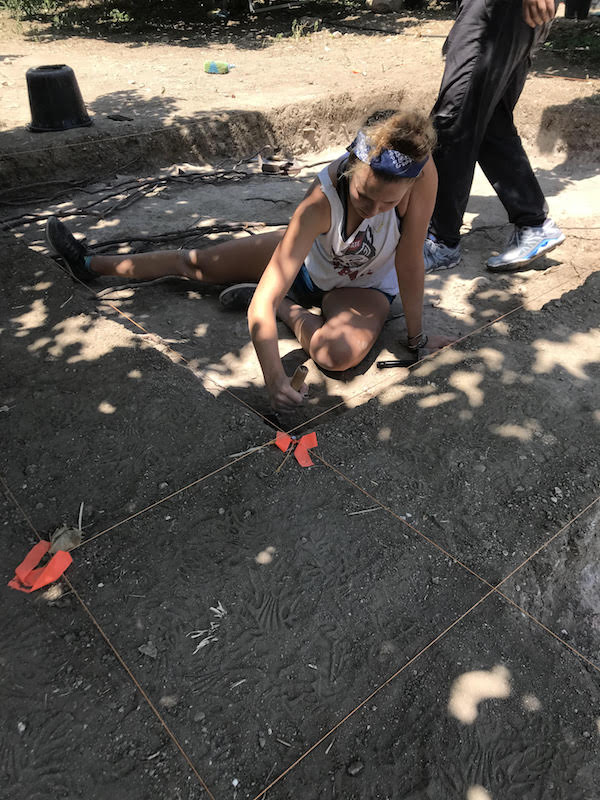
The dig itself is based on NC State’s own Dr. Kate Grossman and Dr. Tate Paulette’s work over the past three years. Their team has worked to create the Makounta-Voules Archaeological Project, a project based just outside of Polis, Cyprus. With the information the team has so far, the site is hopefully from the Chalcolithic time period. We dig Sunday through Thursday from 5:30 AM to 12:30 PM. It’s early but I would much rather not work in the heat of the afternoon. Around 9:00 AM it starts to get pretty warm and sticky! While it may be disgusting to have to be rolling around in dirt all day, it becomes a lot less bad when you accept the fact of “I’m going to get extremely nasty and dirty today.” So many students accept this fact right away and start digging away! I will say it’s hot and sweaty work in the heat, but it’s always nice to step back and see the progress you’ve made. The experience sounds a little rough, but I can assure you it’s one of the best experiences of my life so far!
USP: That really does sound fascinating – and dirty. What is it that you hope to learn from digging in Cyprus?
EG: Through this trip, I hope to gain a better understanding of what all archaeologists do. Often times it’s assumed they dig and that’s it. While we do dig up a lot of soil, archaeologists do so much more then one would ever expect. Thankfully, I’ve seen this work first hand. Yet other than getting a glimpse into what archaeologists do every day, I’ve learned how to actually dig correctly. As it may sound, there are many techniques and tricks needed to properly excavate!
USP: Could you tell us about the most interesting thing you’ve done so far on this project? What has been the most challenging? Why?
EG: The most interesting thing on this trip so far has been the atmosphere of history that surrounds all of Cyprus. Many times individuals don’t even know Cyprus is a country! Yet there is so much history in this country, it’s just been crazy for me to learn all these new and exciting things about a country that maybe was never discussed in any of my past history classes. The most challenging experience I’ve had so far is adjusting to how early our team starts work! We leave for the site at 5:00 AM. Knowing me, I’ve extremely slow in the morning, thus I get up around 4:15 AM. A challenging experience to say the least when I’ve been used to getting up at 9:00 AM!
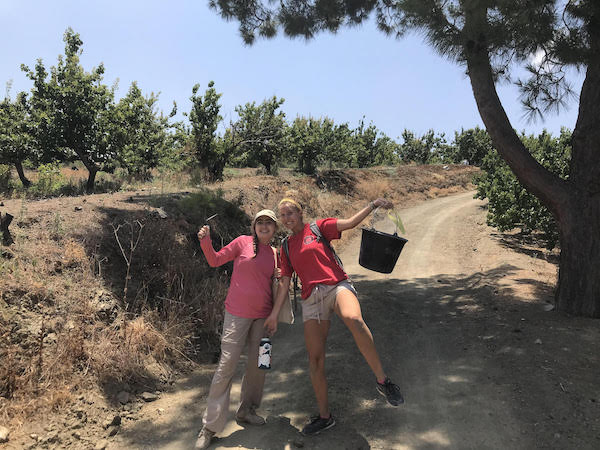
USP: Yes, but then at least you have the afternoon for a siesta and exploration I hope. What would you say you’ve learned there so far?
EG: The most valuable thing I’ve learned so far is just how many career paths you can take when you have an interest in archaeology. The field itself is a little intimidating, yet through this trip and discussions with the supervisors, I’ve come to realize just what all one can do with archaeology. For me specifically, I’ve had an interest in archaeology ever since the lecture about it. But I don’t know if I would ever learn about that field if I never were to come on this trip.
USP: How would you say your participation in the University Scholars Program (USP) has helped prepare you for your time digging in Cyprus?
EG: Whenever traveling abroad, there’s always the aspect of culture shock. You really have no idea what to expect, yet you’re thrown in the middle of a new culture with no “practice,” I guess you could say. Yet by being part of the USP and attending various Scholars Forum events, I’ve been able to prepare myself a little more when it comes to arriving in a new place. The USP presents the world in a way that’s not intimidating! Thus, I’ve had the opportunity to see the world from different perspectives that all try to encourage individuals to see the world and explore the world without having to experience as much culture shock when one reaches their destination.
USP: Yes, it’s so important to expose yourself to new ideas, people, and places to grow. What would you tell other students who are thinking about doing an international experience like this?
EG: If I had to only give one piece of advice to other students, I would say “Don’t expect anything, rather see what the trip presents you.” If I came into this trip with these over the moon expectations, I wouldn’t be having as such a good time as I am. When people say “go with the flow”, really stick to it. It might be a tacky, old saying, yet it’s true through and through. Experience a field school while you’re there in the moment, don’t go in expecting an Indiana Jones type adventure!
USP: But an Indiana Jones adventure sounds so fun! I understand what you mean though. In closing, what is the best advice you’ve received so far?
EG: The best bit of advice I’ve ever received would probably have to be “Just let it happen.” Again, it’s similar to the “go with the flow”, yet it’s a lot less corny. I specifically like it because I take it as a way to not be as stressed. Life is going to be rough sometimes but life is even worse if you’re stressed all the time! For me personally, I’ve had many blessings in disguise and I kind of take this saying as a way to remind individuals that life always works out for the better.
